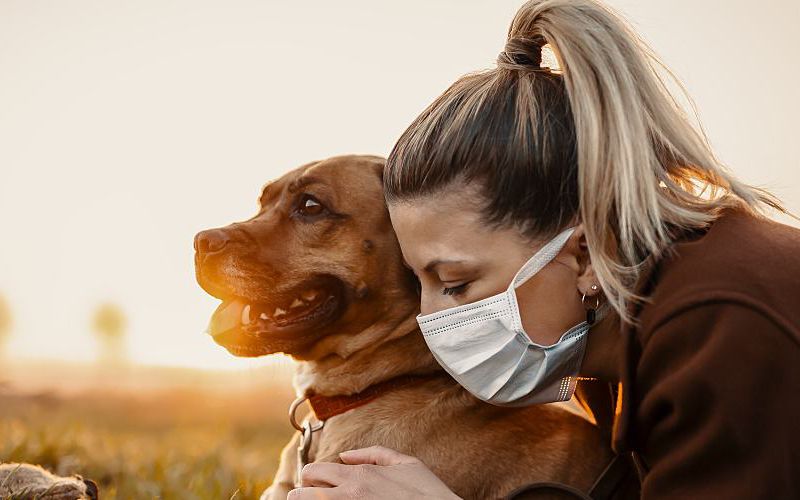Encouraging Your Team to Use Sick Leave during COVID-19


In light of the COVID-19 pandemic, the government has passed many new family and sick leave provisions that help sick team members to stay at home and their healthy colleagues to go to work. Losing one person on a veterinary team to an illness is manageable; the entire team getting sick is not. That's why it's important to keep a team member who might have COVID-19 out of the practice, even though it can mean extra work for everyone else and more paperwork and long hours for you. Here's what you need to know.
The Families First Coronavirus Response Act
Given the prevalence of COVID-19, many practices will face suspected cases. Testing availability is still inconsistent, making it hard for team members to get a diagnosis. If they're not sure that they have COVID-19, some team members may be tempted to come into work even when they feel sick because they don't want to let their peers down or use their vacation time.
As a leader, you need to make it clear that staying home is the right way to help one another. Reinforce that message by informing your staff about the sick time components of the Families First Coronavirus Response Act (FFCRA), which allows you to offer sick pay to affected staff members and claim it back through employment taxes. You can pay up to 80 hours at an employee's full rate if they are advised to stay at home by their doctor or are awaiting test results based on symptoms.
Keep accurate records of any diagnosis, and how many hours you paid, to meet the reporting requirements to claim the funds back. Remember that the Americans with Disabilities Act (ADA) requires that you keep medical information you collect in a confidential file separate from the employee's personnel file. By making taking sick leave as easy as possible for your team, you'll help them do the right thing.
The Family and Medical Leave Act
A second time-off component of the FFCRA relates to child care when schools or other facilities have been closed. This is an extension of the Family and Medical Leave Act and provides for up to 12 weeks of time off. The first two weeks are unpaid but can be combined with the sick leave provision for 12 weeks at two-thirds of the employee's normal rate.
Depending on the number of team members who have children, this may present a serious hardship for your practice, so there is an exception allowed for employers with fewer than 50 staff. Think carefully before taking this exception though — it will apply to your whole team and may deflate morale. Keep in mind that a team member who needs to care for a child may have to take time off, regardless of whether you pay them. The other option would be to terminate the employee — they could apply for unemployment insurance, but you'd lose a trained and loyal team member.
The Centers for Disease Control and Prevention Guidelines
If you're still operating and want to stay that way, you need your healthy team members to keep coming to work. Essential employees have valid concerns: If someone at work has COVID-19, they themselves could get sick and bring it home to their families. To prevent an exodus of otherwise healthy team members, implement policies that help keep your team healthy and reassure them about their own safety.
In my practice, I've been meeting with small groups to address their concerns and have used our daily team meetings to discuss managing risk and the steps we're taking to keep them safe. We based our process on guidelines from the Centers for Disease Control and Prevention and are rigorously enforcing them:
- Employees who have symptoms (fever, cough, shortness of breath) are required to let us know and stay home.
- When at home, they're expected to contact their doctor, isolate from their family as much as they can, and focus on staying hydrated.
- Staff stay home until they have been fever-free for 72 hours without fever-reducing medications, any cough has resolved, and at least seven days have passed since symptoms started.
- We communicate suspected cases to the whole team. If you have to do this, keep in mind that it's hard to maintain the required confidentiality in small teams, so focus on the "what" not the "who."
Lean into the relationships you have with your teams as you ask them to face their fears and come into work every day. I continue to stress the importance of our work and how essential it is to the health and well-being of the pets who come to see us.

How to Plug the Gaps
As people take advantage of leave, figure out how to cover shifts so that remaining employees don't feel overwhelmed and overworked. Here are a few things that have helped to plug those gaps in my practice:
- Review your appointments. Wellness visits are dropping off, so you may not need as many staff members on each shift.
- Lengthen appointments. With fewer people in the building, you won't be able to get as much done in the same amount of time as you're used to. Be prepared for each test, treatment, and interaction to take longer.
- Shorten hours. You may consider closing for one day a week or shortening open hours to ensure you have adequate staff.
- Investigate temporary agencies. Find agencies in your area that can provide doctors or technicians in case you're falling short.
In the current environment, team members are going to need time off. Despite the short-term hardship, practices that support their team members will continue to build their reputation as trustworthy employers. Take this opportunity to use all of your problem-solving skills to shine as a leader who knows how to weather a crisis and sees their team and practice through to the other side.






